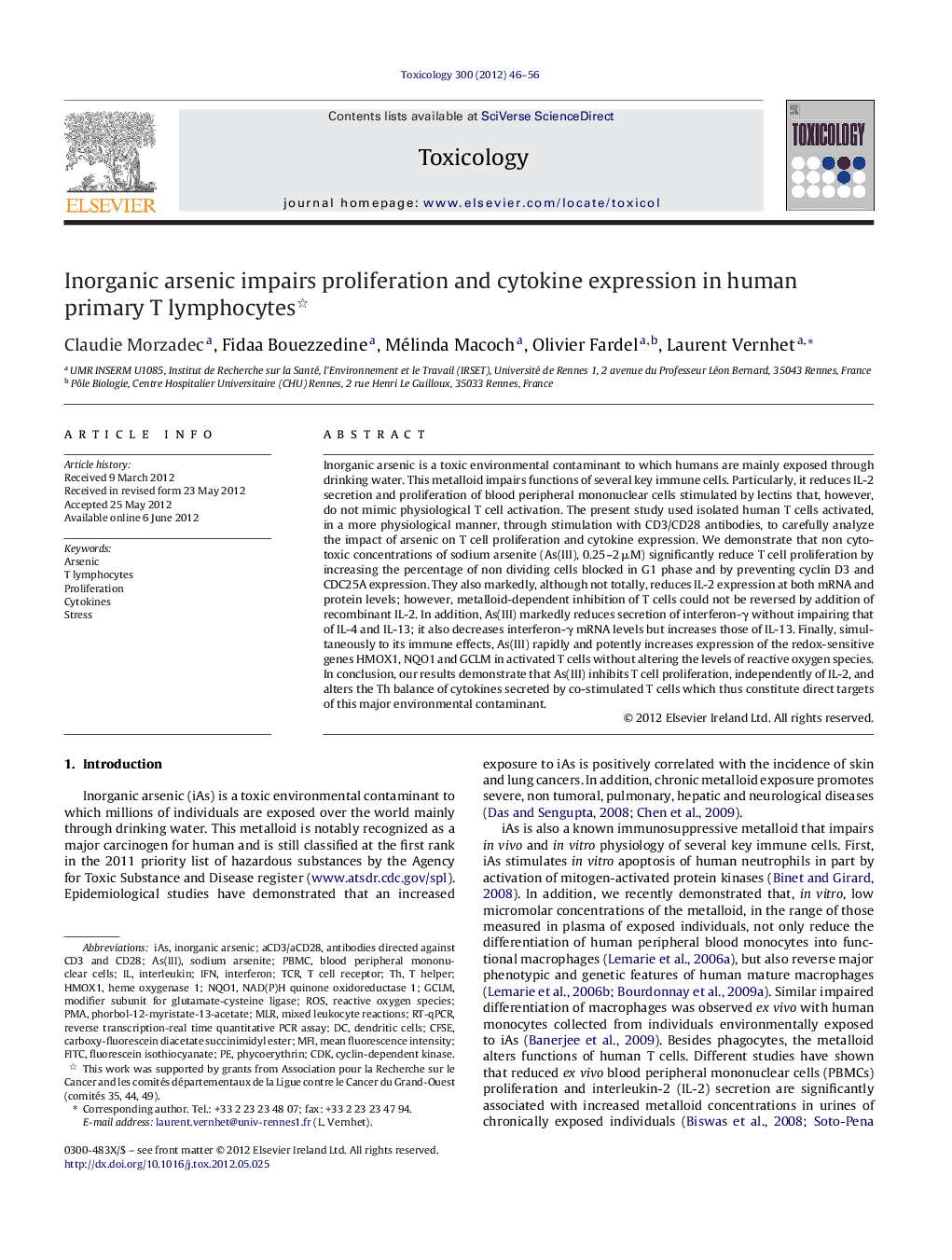| Article ID | Journal | Published Year | Pages | File Type |
|---|---|---|---|---|
| 2595882 | Toxicology | 2012 | 11 Pages |
Inorganic arsenic is a toxic environmental contaminant to which humans are mainly exposed through drinking water. This metalloid impairs functions of several key immune cells. Particularly, it reduces IL-2 secretion and proliferation of blood peripheral mononuclear cells stimulated by lectins that, however, do not mimic physiological T cell activation. The present study used isolated human T cells activated, in a more physiological manner, through stimulation with CD3/CD28 antibodies, to carefully analyze the impact of arsenic on T cell proliferation and cytokine expression. We demonstrate that non cytotoxic concentrations of sodium arsenite (As(III), 0.25–2 μM) significantly reduce T cell proliferation by increasing the percentage of non dividing cells blocked in G1 phase and by preventing cyclin D3 and CDC25A expression. They also markedly, although not totally, reduces IL-2 expression at both mRNA and protein levels; however, metalloid-dependent inhibition of T cells could not be reversed by addition of recombinant IL-2. In addition, As(III) markedly reduces secretion of interferon-γ without impairing that of IL-4 and IL-13; it also decreases interferon-γ mRNA levels but increases those of IL-13. Finally, simultaneously to its immune effects, As(III) rapidly and potently increases expression of the redox-sensitive genes HMOX1, NQO1 and GCLM in activated T cells without altering the levels of reactive oxygen species. In conclusion, our results demonstrate that As(III) inhibits T cell proliferation, independently of IL-2, and alters the Th balance of cytokines secreted by co-stimulated T cells which thus constitute direct targets of this major environmental contaminant.
